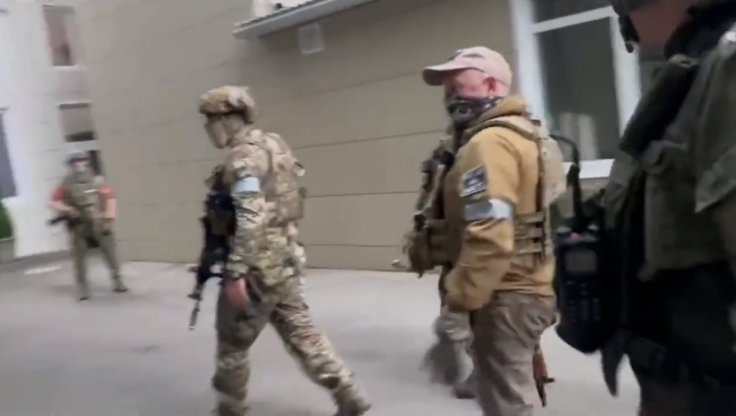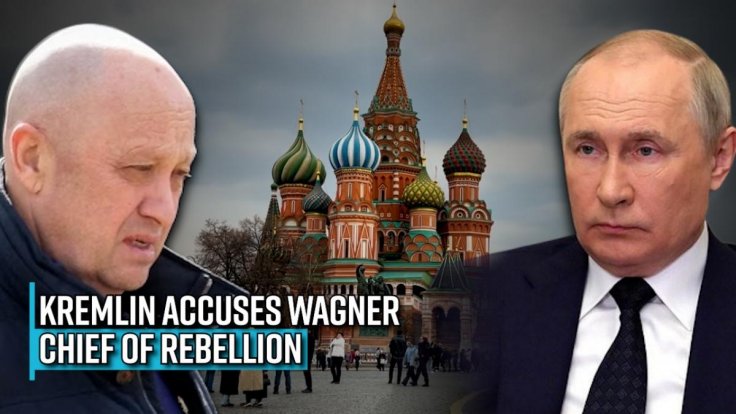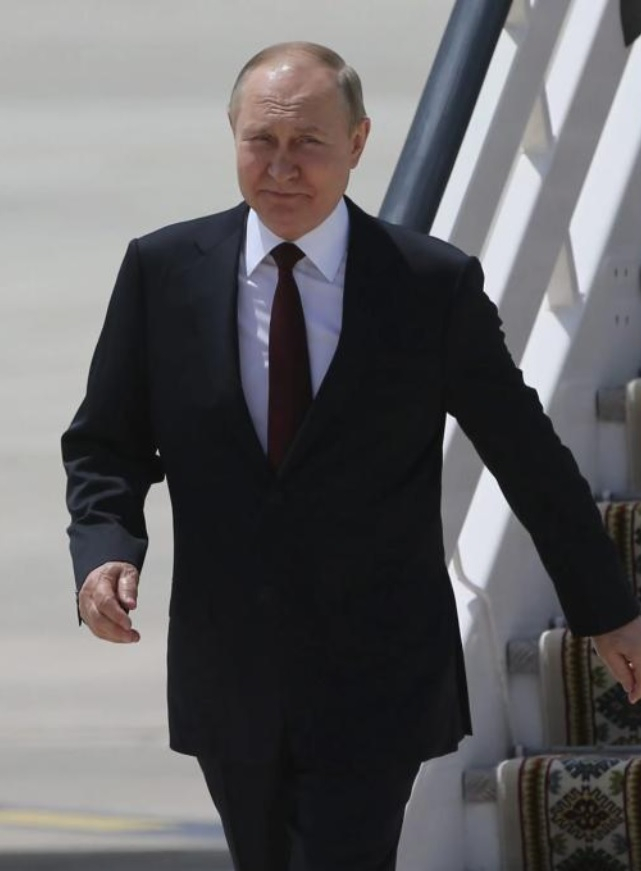Is Russian President Vladimir considerably weakened following the unprecedented rebellion by the Wagner mercenaries? The US Secretary of State Antony Blinken has said the mutiny, which was quelled in a day, has exposed 'fresh cracks' in Putin's leadership.
"We've seen more cracks emerge in the Russian facade. It is too soon to tell exactly where they go, and when they get there. But certainly, we have all sorts of new questions that Putin is going to have to address in the weeks and months ahead," Blinken said during an interview with NBC on Sunday.
Allies and Foes
Wagner boss Yevgeny Prigozhin, who was long hailed as a close confidant of Putin, raised the hell on Saturday when his fighters took control of a southern Russian military outpost and vowed to march on Moscow to take on the Russian military top brass. The move was stunning as Prigozhin and his fighters were seen as close allies of Putin and were indeed instrumental in some of the biggest of Russian successes in the ongoing Ukraine war.

Putin condemned the Wagner move as treason and backstabbing and urged the country to unite in the middle of what appeared to be an internal schism too wide to be brushed under the carpet. The Russian strongman, who visibly appeared angry and upset, vowed to crush the mutiny and rally the Russians around the nationalist cause.
Talking Up Russian Civil War
Even as the western strategists calculated the ramifications of the unfolding Russian civil war and the impending removal of Putin from power at the Kremlin, the mutiny fizzled out. As per a deal brokered by Belarus President Alexander Lukashenko, Wagner chief Prigozhin agreed to move to Belarus and his 25,000-strong private militia would move back to their bases. Kremlin said it would drop charges against the mercenaries and Prigozhin considering their services to the nation so far during the Ukraine war.

The quick resolution of the Wagner mutiny seemingly underscored Putin's control over the Russian state but western analysts broadly concluded that the uprising by a loyal faction pointed towards the eventual demise of the Putin regime.
"One of the outcomes, I believe, of the last 36 hours, maybe 48 hours, is that the institutions that we have long seen as being very secure in Russia are slowly unraveling .... The whole institution of the military now, the appearance of what the Russian military is, is much diminished," said retired U.S. Air Force General Philip Breedlove, who was the head of US European Command, according to Reuters.
Impact on Russian Military
According to the Institute for the Study of War, which is a Washington-based think tank, the Kremlin now faces a deeply unstable equilibrium. "The Lukashenko-negotiated deal is a short-term fix, not a long-term solution, and Prigozhin's rebellion exposed severe weaknesses in the Kremlin and Russian MoD," it said.
Meanwhile, Italian Foreign Minister Antonio Tajani said the myth of the unity of Putin's Russia was over after the Wagner mutiny, adding that the Russian military stands divided. "It's the inevitable outcome when you support and finance a legion of mercenaries," he said.

The western leaders and analysts also think that the attempted coup will diminish Russia's resolve in the ongoing war and will eventually aid the Ukrainian counter-offensive. "This is a critical time for Ukraine. This counteroffensive is going to be defining as to where we're going to be in the next year or two," US Senator Ben Cardin said.
Blinken also said the Russian military campaign against Ukraine will be weakened in the aftermath of the rebellion as Kremlin will be preoccupied and distracted. "To the extent that the Russians are distracted and divided it may make their prosecution of aggression against Ukraine more difficult," Blinken said.
Quelling the Rebellion
However, according to Chinese strategists, the belief that Putin's power is diminished is merely a wishful thinking. The fact that Putin was able to put down the rebellion within hours without shedding a drop of blood proves that he is firmly in control at the Kremlin, according to them.
"Thinking that this revolt targets Putin is wishful thinking, as some Western politicians are used to looking at Russian politics in their imagination, showing that they don't understanding the basic conditions of Russia," Chinese Vice Foreign Minister Ma Zhaoxu said, according to the Global Times.

Other experts said the the quick quelling of the rebellion in fact underscored the power of Putin. "However, quelling the revolt in such a short period of time actually consolidated the authority of the Putin administration, which has little impact on the frontline battlefield between Russia and Ukraine," said Cui Heng, an assistant research fellow from the Center for Russian Studies of East China Normal University.









